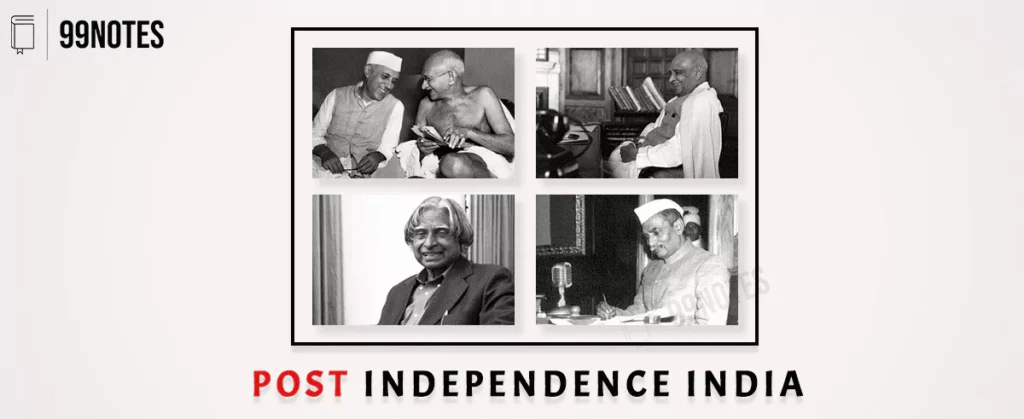
Post Independence INDIA UPSC Notes Free Download
WORLD HISTORY
World history is not a standalone subject in the UPSC Civil Services Exam. However, candidates are expected to have a broad understanding of world history as part of the General Studies paper, which covers Indian and world history, culture, and geography.
In the UPSC Civil Services Exam, world history is typically covered in the context of its impact on India and the world. Candidates should be familiar with the major events, trends, and developments in world history, as well as the ways in which they have shaped the world we live in today.
- Ancient civilizations: Candidates should be familiar with the major ancient civilizations, such as those of Egypt, Greece, and Rome, and their contributions to world history.
- The Middle Ages: Candidates should be familiar with the major events and trends of the Middle Ages, such as the spread of Christianity and Islam, the rise and fall of empires, and the development of feudal systems.
- The Modern Era: Candidates should be familiar with the major events and trends of the modern era, such as the Industrial Revolution, the two World Wars, and the Cold War.
- Decolonization and globalization: Candidates should be familiar with the processes of decolonization and the emergence of the modern nation-state system, as well as the trends of globalization and the interconnectedness of the modern world.
Key topics of world history for UPSC Civil Services Exam include:
The study of world history is important for several reasons, especially for candidates preparing for the UPSC Civil Services Exam.
Here are a few reasons why studying world history is important:
- Understanding the present: World history helps us understand the events and developments that have shaped the world we live in today. By studying world history, you can gain a better understanding of the political, economic, and cultural forces that have shaped the world and continue to influence it today.
- Improving analytical skills: The study of world history requires students to analyze and interpret a wide range of primary and secondary sources, such as historical texts, artifacts, and media reports. This can help you develop critical thinking and analytical skills that are useful in a variety of fields.
- Civil Services Exam: The UPSC Civil Services Exam is a competitive exam in India that is conducted to select candidates for various government positions, including the Indian Administrative Service (IAS), Indian Police Service (IPS), and Indian Foreign Service (IFS). World history is one of the subjects that is covered in the exam, and a thorough understanding of this subject can help you score well on the exam.
- Understanding contemporary issues: Many of the issues and challenges that the world faces today, such as conflict, inequality, and environmental degradation, have their roots in world history. By studying world history, you can gain a deeper understanding of the origins and complexities of these issues and be better equipped to address them.
- Developing a global perspective: The study of world history helps us understand the diverse cultures, societies, and economies that make up the world and the ways in which they are interconnected. This can help you develop a more global perspective and be better prepared to navigate the increasingly interconnected world of today.
By studying these and other topics, candidates can gain a broad understanding of world history and its impact on the world today, which will be helpful in preparing for the UPSC Civil Services Exam.

